Institutionalization at an unprecedented pace
According to the latest ranking of the 38th Global Financial Centres Index (GFCI 38) announced on September 25, 2025, Ho Chi Minh City ranked 95/120, up 3 places compared to the previous ranking, surpassing Bangkok, Thailand (102). This ranking is based on 5 factors: business environment; human resources; infrastructure; financial ecosystem, and reputation. If calculated from GFCI 36, Ho Chi Minh City increased 7 places.
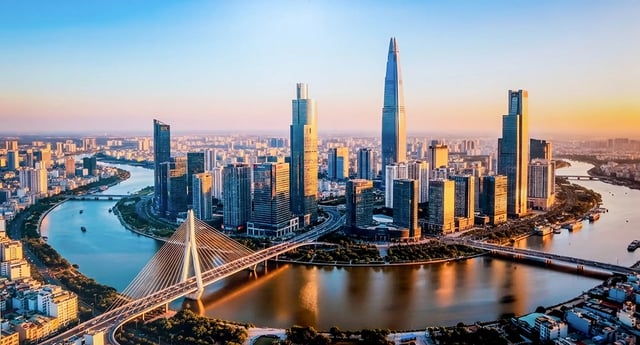
Perspective of the International Financial Center in Ho Chi Minh City. This is considered a breakthrough to attract medium and long-term financial resources.
PHOTO: Ho Chi Minh City People's Committee
This is an impressive achievement, especially since it is the first time Ho Chi Minh City has surpassed Bangkok. This achievement was achieved before the construction of the International Financial Center in Ho Chi Minh City according to the Politburo 's policy and the National Assembly's Resolution.
The Politburo's policy (in Conclusion No. 47-TB/TW dated November 15, 2024) and the National Assembly's Resolution (Resolution No. 222/2025/QH15, effective September 1, 2025) on building an international financial center in Ho Chi Minh City and Da Nang are breakthrough policies. The State applies outstanding preferential policies on foreign exchange, banking activities, capital market development, immigration and residence for experts, managers and investors; on land, infrastructure development, import and export... These policies, as Prime Minister Pham Minh Chinh said, are "where the law is designed for the future".
Regarding corporate income tax (CIT), income of enterprises from the implementation of new investment projects arising in the preferential development sectors in the international financial market is subject to a CIT rate of 10% for 30 years, tax exemption for up to 4 years and 50% tax reduction for up to 9 subsequent years. Projects not in the priority development sectors are subject to a tax rate of 15%, tax exemption for up to 2 years and 50% tax reduction for up to 4 subsequent years.
Regarding personal income tax, managers, experts, scientists , and highly qualified people working at international financial centers, including Vietnamese and foreigners, are exempt from tax on income from salaries and wages earned from performing work at international financial centers until the end of 2030. Individuals with income from transferring shares, capital contributions, and capital contribution rights to members of the financial centers are exempt from personal income tax until the end of 2030.
Regarding the controlled financial testing policy for technology-based financial services (Sandbox Fintech), organizations and individuals participating in the testing, management agencies and supervisors are exempt from administrative, disciplinary and civil liability to the state if they cause damage to the state during the testing process due to objective reasons if they comply with the correct procedures. In case of causing damage to other organizations and individuals, the testing party must compensate and receive partial support for compensation costs from the city budget depending on the level of damage and budget capacity.
Building an international financial center is designing a new and unprecedented policy in Vietnam, but from the policy (Conclusion of the Politburo) to institutionalization by a resolution of the National Assembly within only 7 months and 12 days is a rare speed, demonstrating the very high political determination of the Party and State.
Challenge
According to the direction, from now until 2030, focus on promulgating and immediately implementing 8 groups of policies that are in line with international practices, suitable for Vietnam's conditions and need to be applied immediately. At the same time, pilot 6 groups of common policies in major financial centers around the world, but need to have an implementation roadmap to suit the actual conditions in Vietnam. From 2030 - 2035, organize full implementation according to the roadmap of common policy groups in major financial centers around the world that are suitable for Vietnam's actual conditions. This framework roadmap is relative in nature, it is necessary to speed up the implementation progress as quickly as possible, if the opportunity is favorable, the conditions are ripe, the next steps can be done immediately, without waiting in order.
The goal is that by 2035, Vietnam will have an international financial center in the top 75 centers in the world; by 2045, it will strive to reach the top 20 centers globally. This is a challenging goal.
We did not think that Ho Chi Minh City would surpass Bangkok in 2025, but it did. With breakthrough policies, achieving the target by 2035 is possible, but the target of reaching the top 20 by 2045, which is 20 years from now, is extremely difficult.
The top 20 financial centers in the world today are New York, London, Hong Kong, Singapore, San Francisco, Shanghai, Los Angeles, Chicago, Geneva, Seoul, Tokyo, Paris, Frankfurt, Luxembourg, Boston, Dubai, Amsterdam, Zurich, Toronto, Beijing. It is important to note that since the GFCI index was introduced with 38 rankings, about 90% of the financial centers in the top 20 have remained unchanged. New York is still number 1, London is number 2, the positions of other cities have not changed significantly. Beijing alone rose from 26th (2012) to 20th (2014) and has remained stable in the top 20 for more than 10 years. Shenzhen entered the top 20 in 2017, then only dropped a few places to 22nd, 23rd, 24th, not further. In the next 20 years, will Ho Chi Minh City surpass Beijing, or even surpass Shenzhen? It is very difficult to answer.
David Sacks, the current US President's advisor, who is considered the "boss" of artificial intelligence (AI) and cryptocurrency in the White House, has just cited information showing that 40% of US GDP growth this year comes from AI and AI companies currently account for 80% of stock increases in the US stock market. But to compete with China in AI, the US has been removing many barriers for this field. But there are still many barriers from the states. Mr. Sacks said on The All-in Podcast: All states have AI bills by 2025 and 118 laws have been passed in 50 states, that everyone seems to be driven by the imperative to do something on AI, although no one is really sure what that is.
"There are 50 different states, each with their own reporting regime, which is a trap for startups because they all have to figure out what to report, how often, and to whom," Sacks said. He said the US needs "a single national standard" for AI to compete with China, emphasizing "we have to make sure that we actually have honest, objective AI instead of high-minded AI" (meaning AI must be absolutely honest, not dominated by left-right ideological tendencies).
The US is the world's leading economy, also has leading financial markets, but still has to overcome "institutional barriers", first of all with "a single national standard". For our country, General Secretary To Lam once said that "the bottleneck of bottlenecks" is the institution. Objectively speaking, under the unified leadership of a Party like ours, removing institutional barriers is much easier than in the "bipartisan" US. Creating a legal framework for international financial markets is also a breakthrough to remove this institutional barrier. The problem is implementation.
According to the assignment, there are up to 12 ministries and localities participating in the implementation of the construction of the International Financial Center, with Prime Minister Pham Minh Chinh as the Head of the Steering Committee. There must be at least 6 decrees guiding the implementation of the Resolution of the National Assembly. But up to this point, no decree has been issued. To avoid the situation of "many chefs spoiling the dish", after issuing all the decrees, the ministries must step back from the task of managing the International Financial Center. This center must be under the unified management of the Government and be strongly decentralized to Ho Chi Minh City, the ministries only have the task of advising the Government and supporting the city. It is not by chance that Resolution 222 of the National Assembly must include this sentence: "The Government must issue a Decree to ensure compliance with the Party's regulations on controlling power, ensuring national interests, the interests of the people, enterprises must ensure implementation conditions and be responsible for the issued regulations". Investors, both domestic and foreign, are afraid of the request-grant mechanism like fear of fire.
If there is any sign of "many chefs", the international TTTC "dish" will be ruined, then we cannot hope to be in the top of the world. Saigon - Ho Chi Minh City has the secret to creating prosperity for hundreds of years and has a reputation in the world. Our biggest challenge is our apparatus.
Source: https://thanhnien.vn/xay-dung-trung-tam-tai-chinh-quoc-te-de-tao-buoc-phat-trien-dot-pha-185251011185327449.htm


![[Photo] Panorama of the Patriotic Emulation Congress of Nhan Dan Newspaper for the period 2025-2030](https://vphoto.vietnam.vn/thumb/1200x675/vietnam/resource/IMAGE/2025/11/04/1762252775462_ndo_br_dhthiduayeuncbaond-6125-jpg.webp)
![[Photo] Opening of the 14th Conference of the 13th Party Central Committee](https://vphoto.vietnam.vn/thumb/1200x675/vietnam/resource/IMAGE/2025/11/05/1762310995216_a5-bnd-5742-5255-jpg.webp)



![[Photo] The road connecting Dong Nai with Ho Chi Minh City is still unfinished after 5 years of construction.](https://vphoto.vietnam.vn/thumb/1200x675/vietnam/resource/IMAGE/2025/11/04/1762241675985_ndo_br_dji-20251104104418-0635-d-resize-1295-jpg.webp)


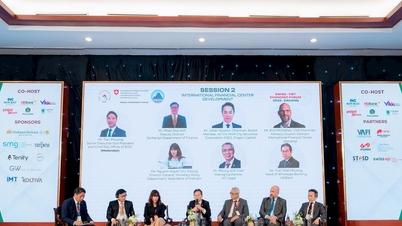
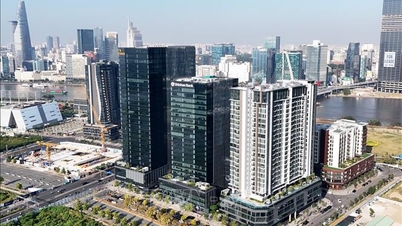

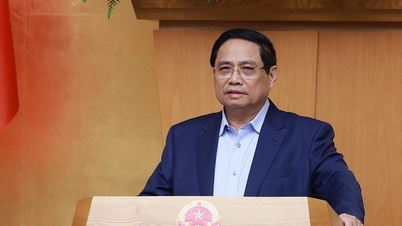



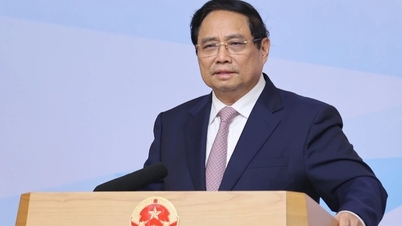

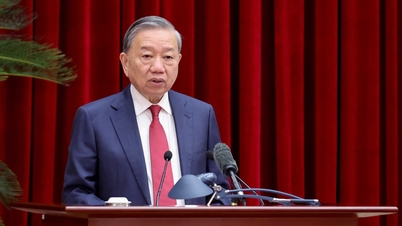
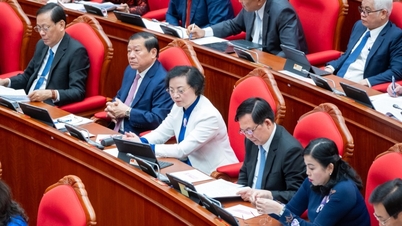
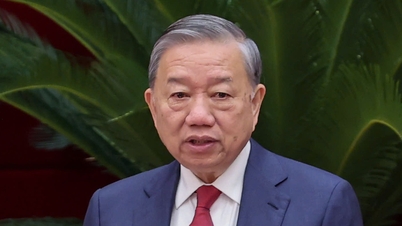
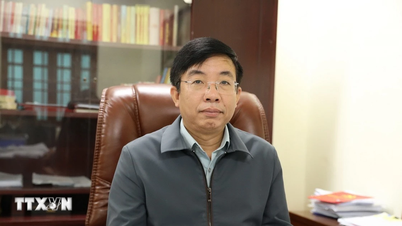

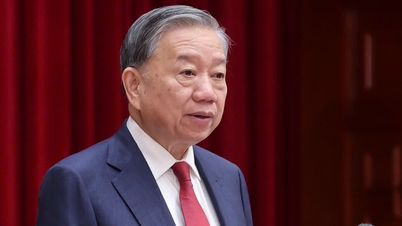

























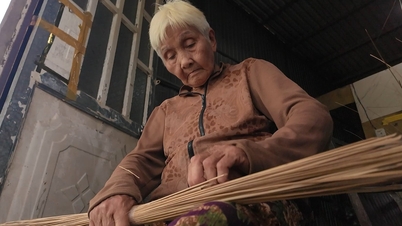













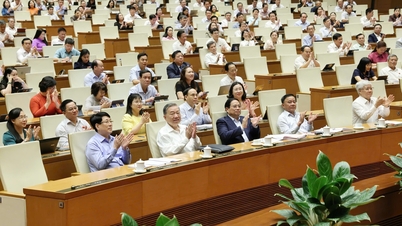




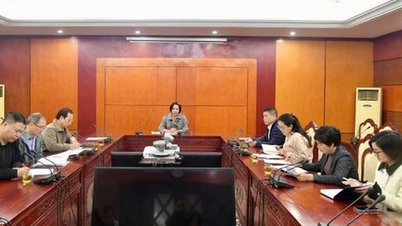

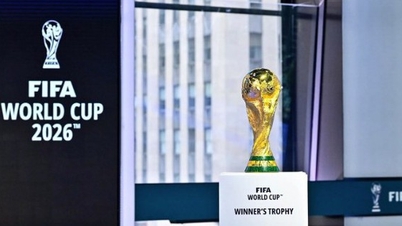
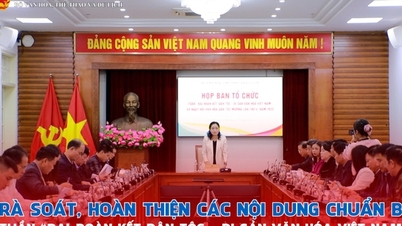



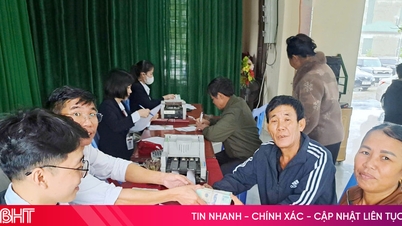






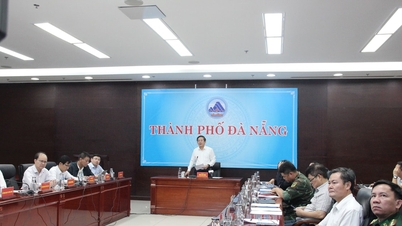
















Comment (0)